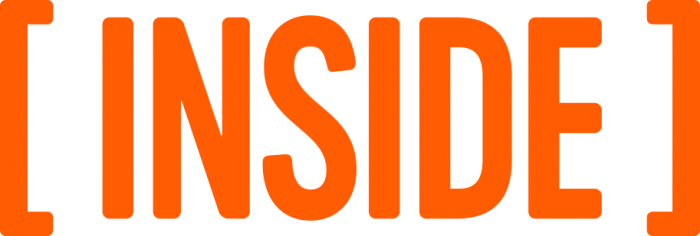above image: elisfkc on Flickr
What is Waymo?
Waymo is an autonomous vehicle company founded in 2009 in Mountain View, California, by Sebastian Thrun and Anthony Levandowski. A subsidiary of tech giant Alphabet (Google’s parent company), it began as Google’s attempt to develop an autonomous vehicle. The company was spun off as Waymo in 2016 and has since raised $3B of outside funding with a valuation of $30B.
Waymo currently has 600 vehicles in its fleet, some of which have achieved Level 4 autonomy, meaning they can operate by themselves in most situations, but humans can still manually override the system.
To date, the company’s self-driving Chrysler Pacificas and Jaguar I-Pace electric SUVs have driven 20 billion computer-simulated miles and 20 million miles on public roads in 25 cities. (tweet this)
Waymo’s Robotaxi
Since 2017, Waymo has been testing its self-driving technology in Phoenix, Arizona, both with and without human safety drivers. Later that year, Waymo began its early rider program (for research purposes) through which pre-selected members of the public could hail a ride (with a human safety driver). It then launched its ride-hailing service Waymo One (with a human safety driver) in December 2018 to a limited number of customers in a beta test. Waymo revealed both services had a combined 1,500 monthly active users by December 2019.
Waymo One became available to the general public in October, allowing customers to hail a car (without a human safety driver) within a 50-square mile area of Phoenix. Waymo is currently the only self-driving service company that offers rides without a human safety driver in the vehicle.
In February 2021, Waymo announced it would begin testing its robotaxi service in San Francisco with a limited number of employee volunteers. This marked the first time the company expanded its ride-hailing service beyond Phoenix.
Waymo Partnerships
- Volvo – In June 2020, Waymo announced it would integrate its self-driving software into a fleet of electric robotaxis Volvo will deploy in the future.
- Fiat Chrysler – In July 2020, Waymo and Fiat Chrysler agreed to develop self-driving commercial vehicles such as delivery vans and large pickups. Fiat Chrysler made Waymo its exclusive partner for any future Level 4 self-driving vehicles it deploys in its fleet.
- Renault and Nissan – In June 2019, Waymo partnered with Renault and Nissan to develop self-driving cars and trucks in France and Japan.
- Daimler – Waymo and Daimler (Mercedes Benz’s parent company) formed a strategic partnership in October 2020 to develop and deploy fully autonomous trucks.
- Jaguar Land Rover – JLR and Waymo agreed to a partnership in 2018 to “develop the world’s first premium self-driving electric vehicle.”
Waymo’s Simulations
In March 2021, Waymo claimed its artificial intelligence technology could avoid or mitigate the majority of a set of fatal accidents. Waymo looked at 72 crashes in Chandler, Arizona, that occurred between 2008-2017 to gauge how its self-driving technology would respond in similar situations. The company performed 91 simulations.
- Waymo's vehicles "avoided or mitigated 88 out of 91 total simulations."
- They also would have "reduced the likelihood of serious injury by a factor of 1.3 to 15 times,” meaning less chance of the driver's death as a result of injuries.
- Waymo's vehicles successfully avoided all 20 simulations that involved a pedestrian or cyclist being struck by a driver.
- However, they weren't able to avoid incidents in which someone died after being rear-ended by another car.
- While Waymo doesn't believe it can eradicate fatalities, it thinks the best way to avoid serious injury is to employ an evasive maneuver — which its vehicles did in all simulations.
Waymo/Uber Legal Dispute — A Timeline
- January 2016: Founder Anthony Levandowski leaves Waymo to start Otto, a self-driving truck startup.
- August 2016: Otto is acquired by Uber for $680M.
- February 2017: Waymo sues Uber, accusing the ride-sharing company of stealing Google’s self-driving car trade secrets.
- May 2017: Uber fires Levandowski after he fails to comply with a court order to turn in relevant documents.
- February 2018: Uber and Waymo reach a settlement; Uber agrees to pay $245M to Waymo.
- 2019: Levandowski is indicted and later pleads guilty on a federal charge of stealing self-driving car trade secrets while he worked at Waymo. He admits that he downloaded more than 14,000 documents before leaving the company's self-driving division.
- January 2021: Former President Donald Trump pardons Levandowski. The White House says he "led Google’s efforts to create self-driving technology" and "has paid a significant price for his actions."
Waymo and the Self-Driving Industry
In order for a vehicle to be fully autonomous it has to achieve Level 5 autonomy. It’s unknown if or when that’ll occur but Waymo CEO John Krafcik isn’t bullish on its prospects. In 2019, Krafcik called Level 5 "a bit of a myth." He added, “Level 5 means you can drive anything anywhere in any weather conditions, like, you can drive from San Francisco to Santiago, Chile, any time of year, just press a button. This is probably never going to happen. Humans don't even do this."
In January 2021, Waymo announced it would drop the term “self-driving” and start using “fully autonomous.” The company said the change wasn't “just a branding or linguistic exercise” and emphasized that “precision in language matters and could save lives.” It also accused other automakers of incorrectly using the term "self-driving" to mislead the public about their technology capabilities, which was interpreted as a subtle dig at Tesla.
Shortly after this decision, Krafcik did an interview with German publication Manager Magazin where he said Tesla was “no competitor at all” on autonomous vehicles. "We manufacture a completely autonomous driving system,” he went on to say. “Tesla is an automaker that is developing a really good driver assistance system.”
Share this article on Twitter.
About the writer: Jigney Pathak is a Business Researcher at Inside who loves technology, finance & sports. He has a Bachelor of Business Administration with a finance specialization & has previously worked at Salesforce.




